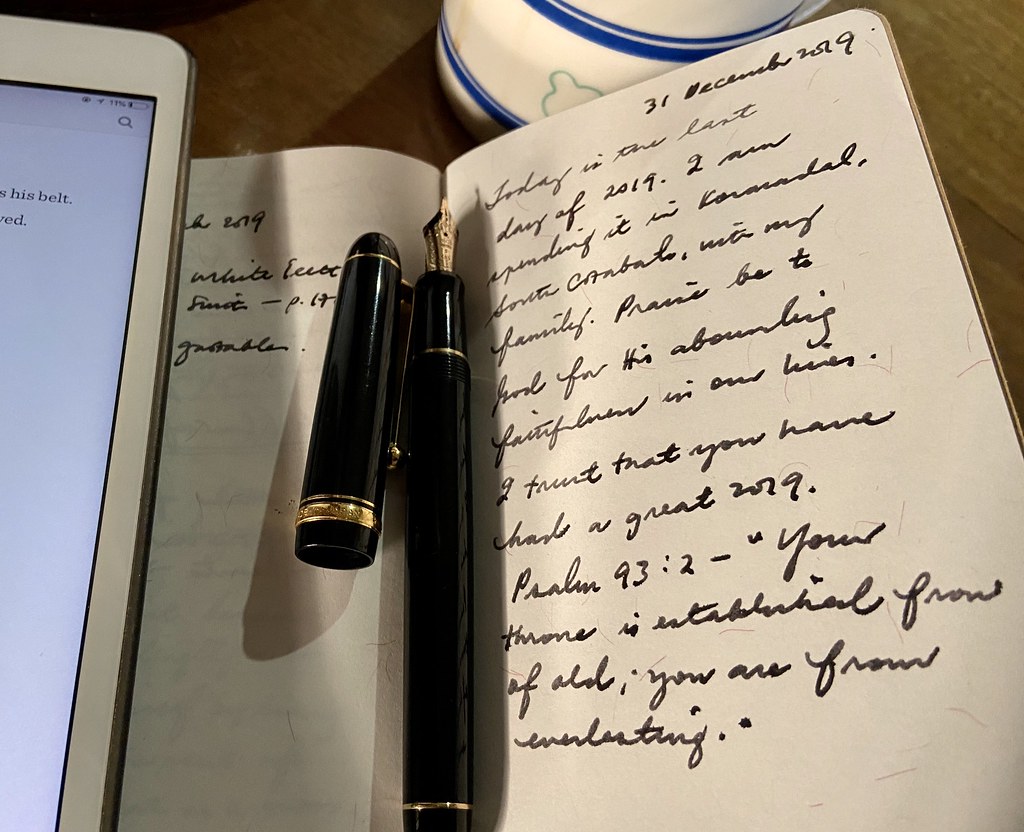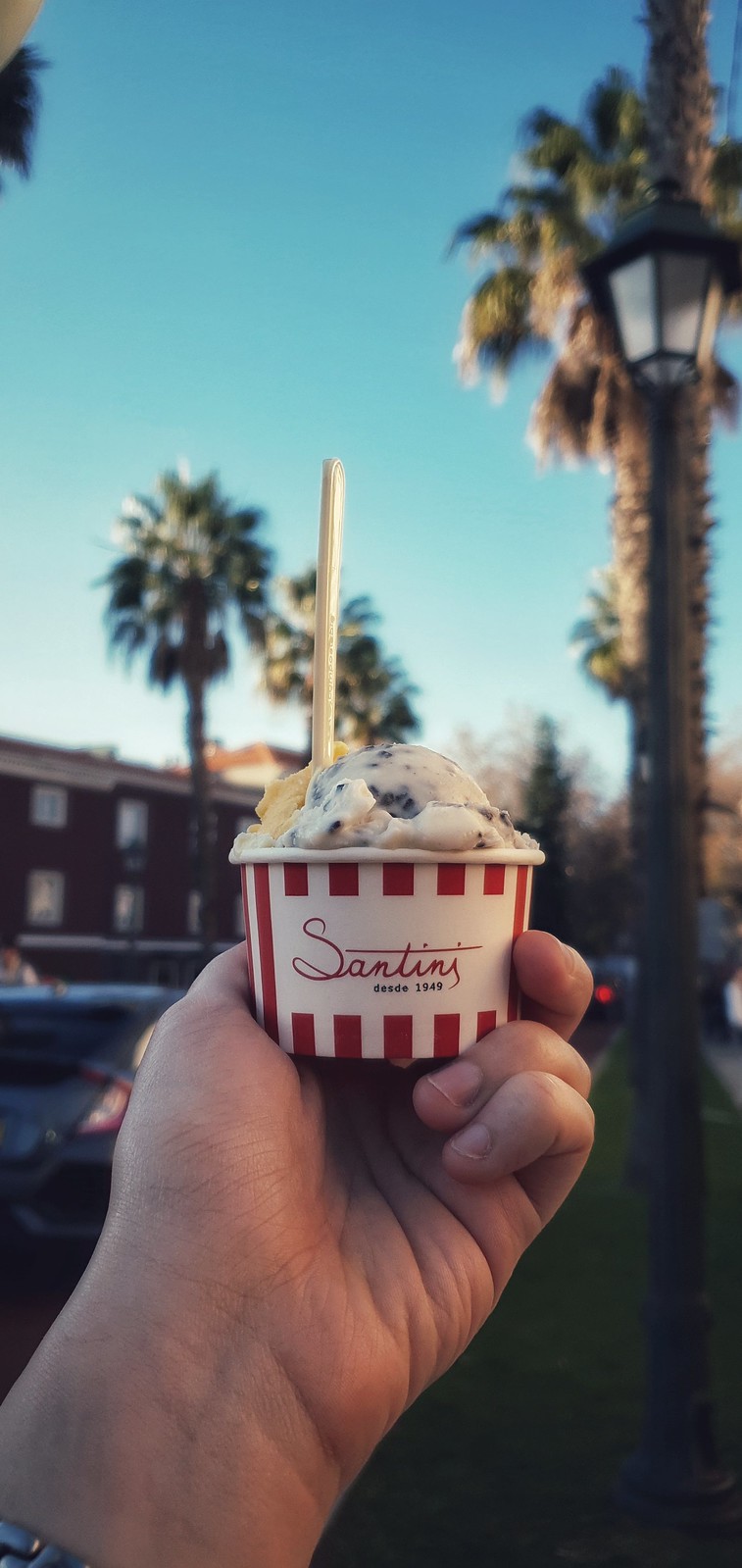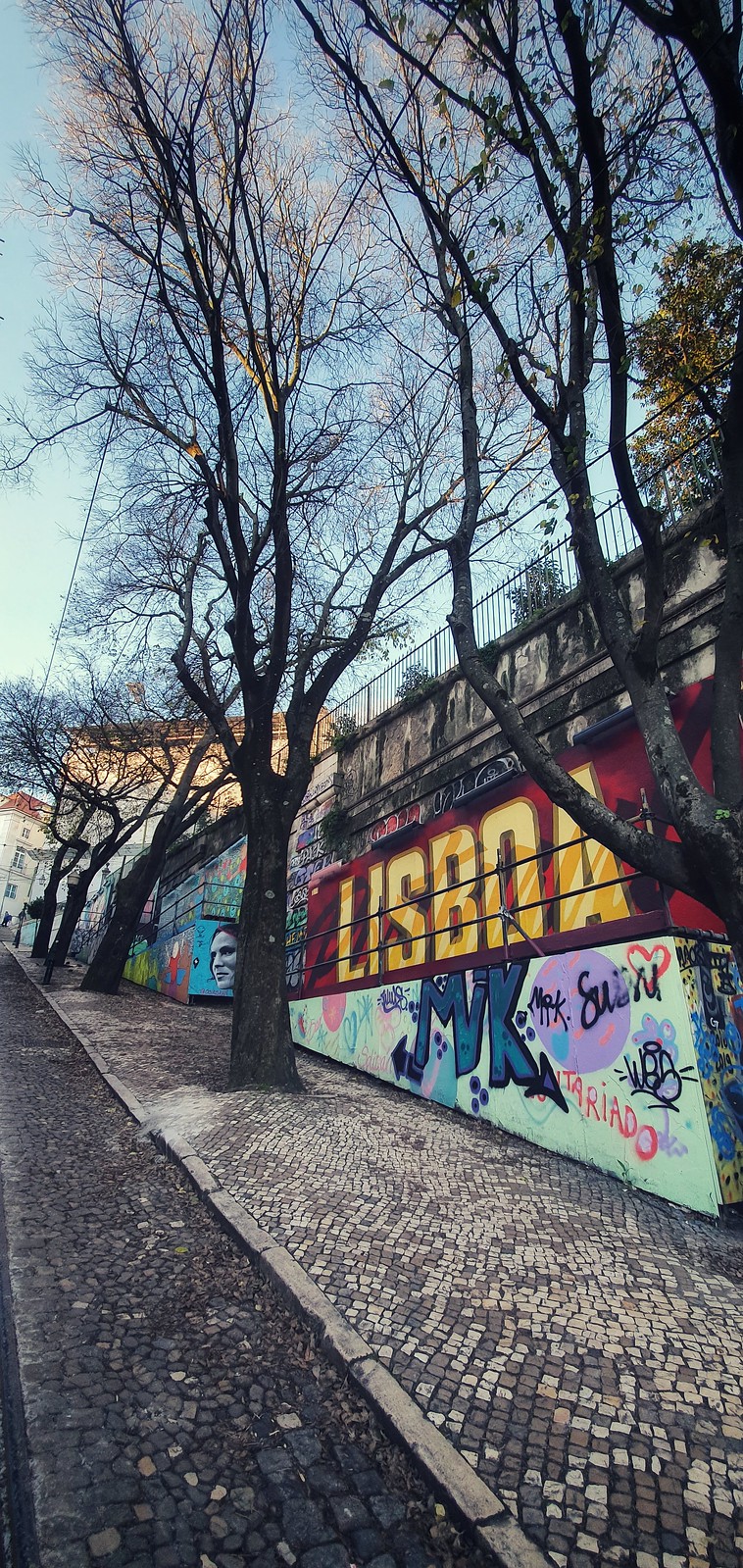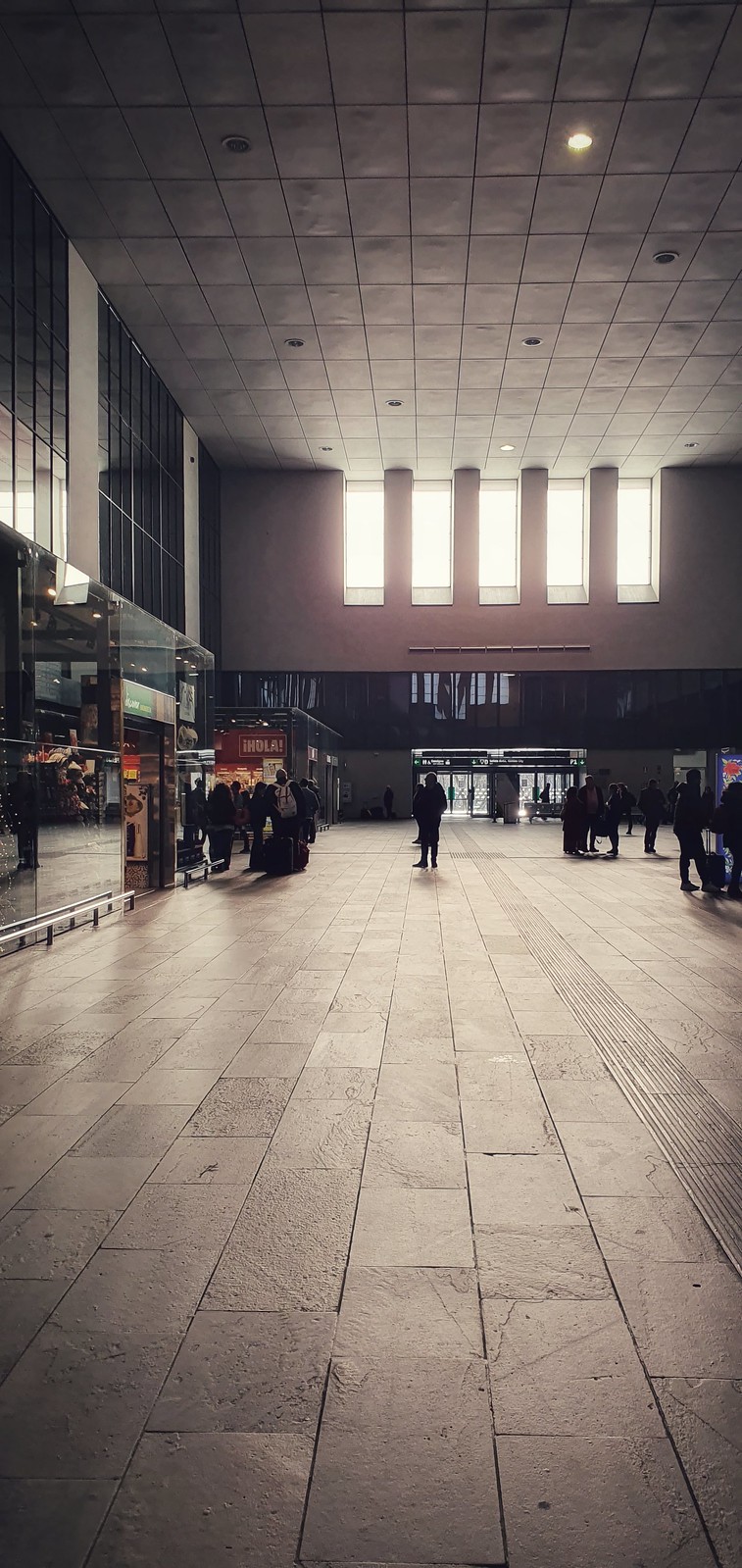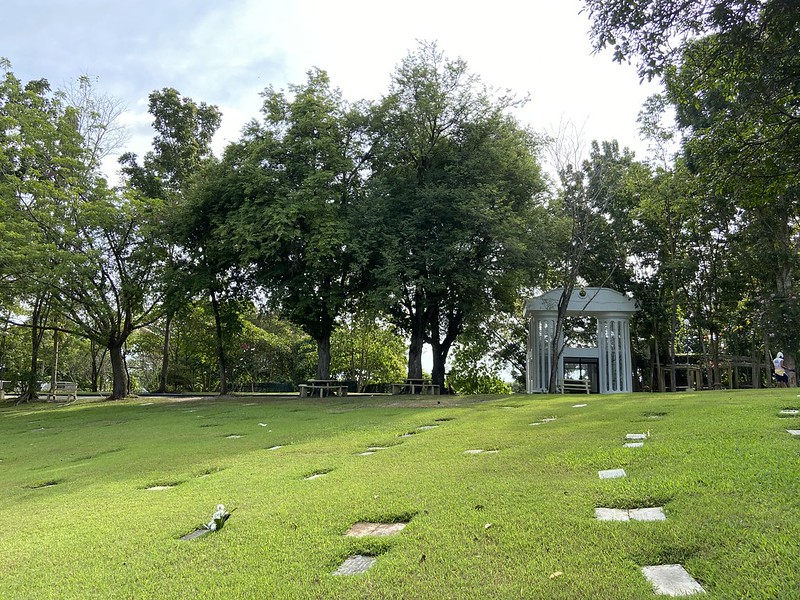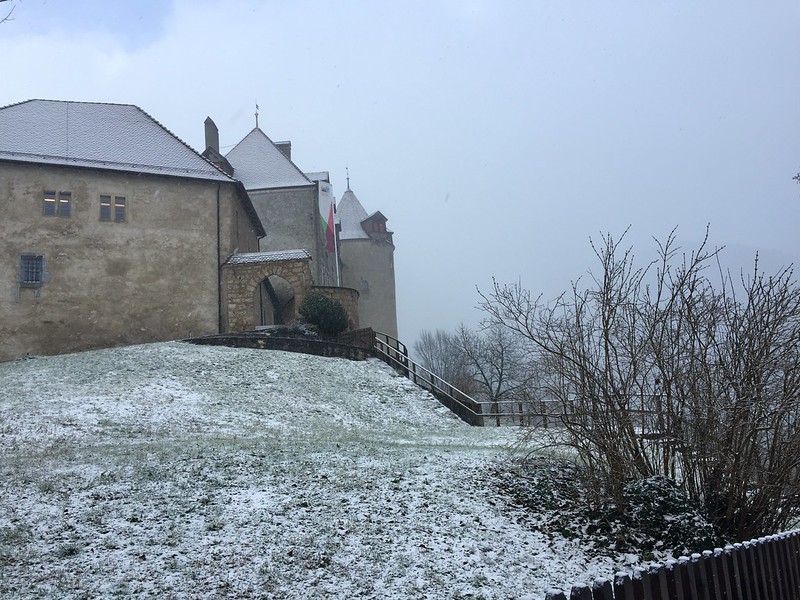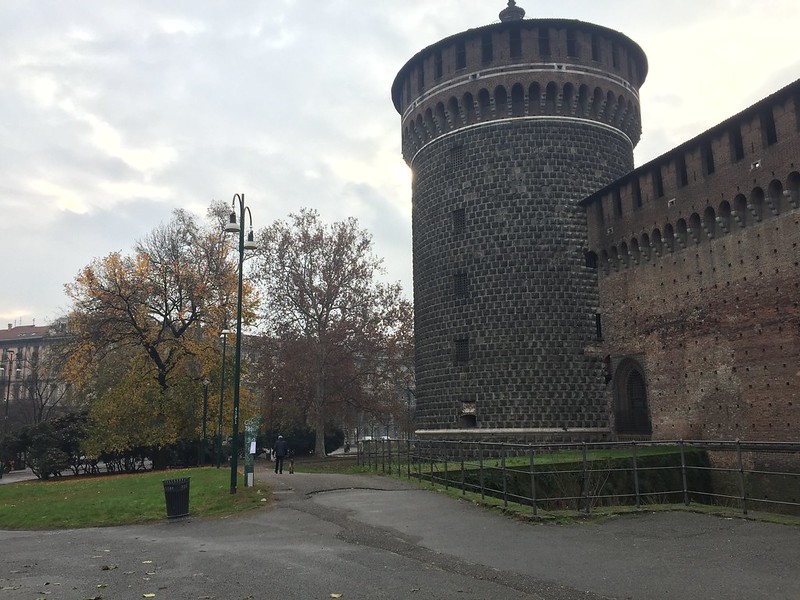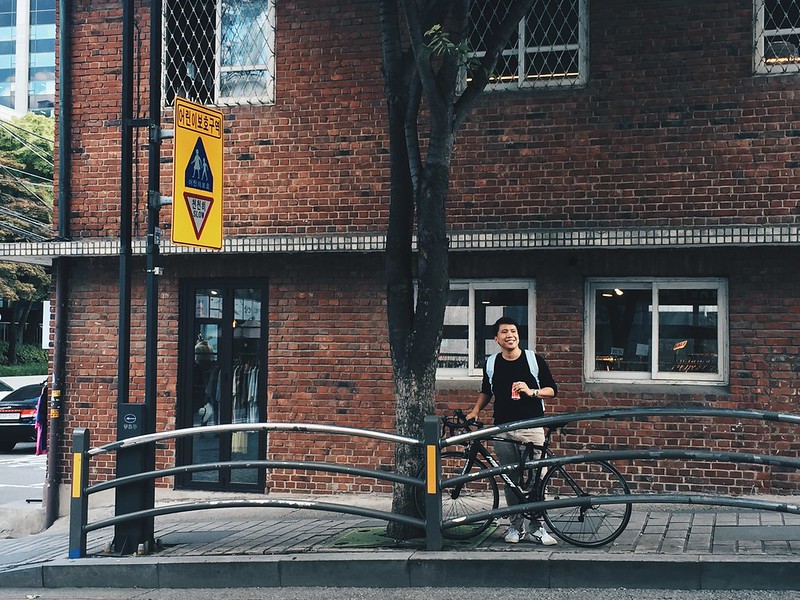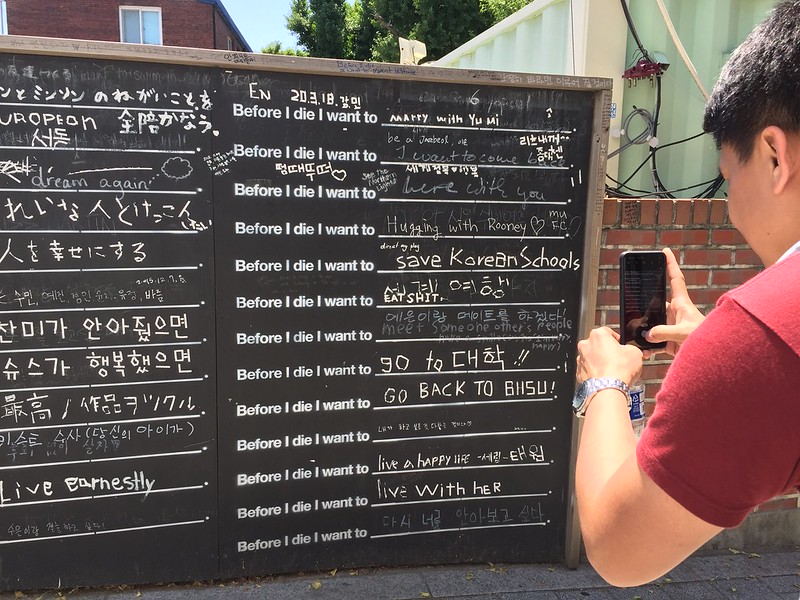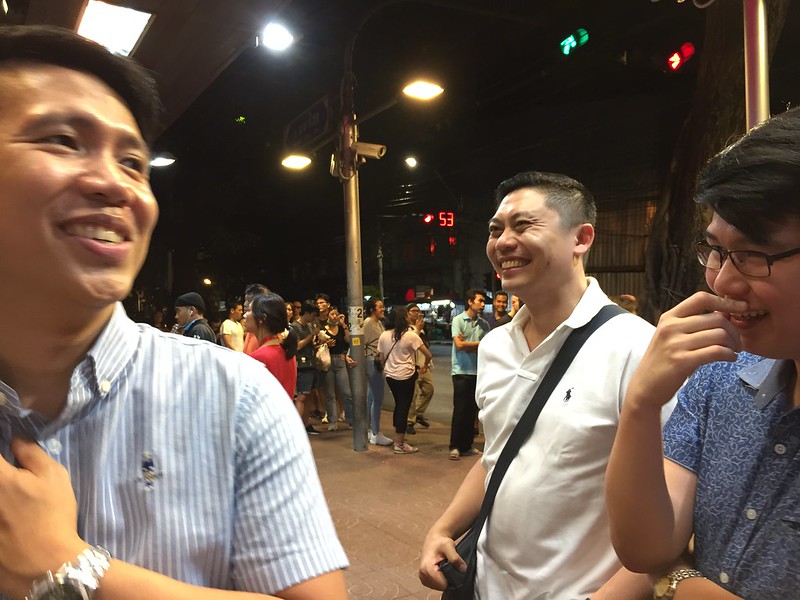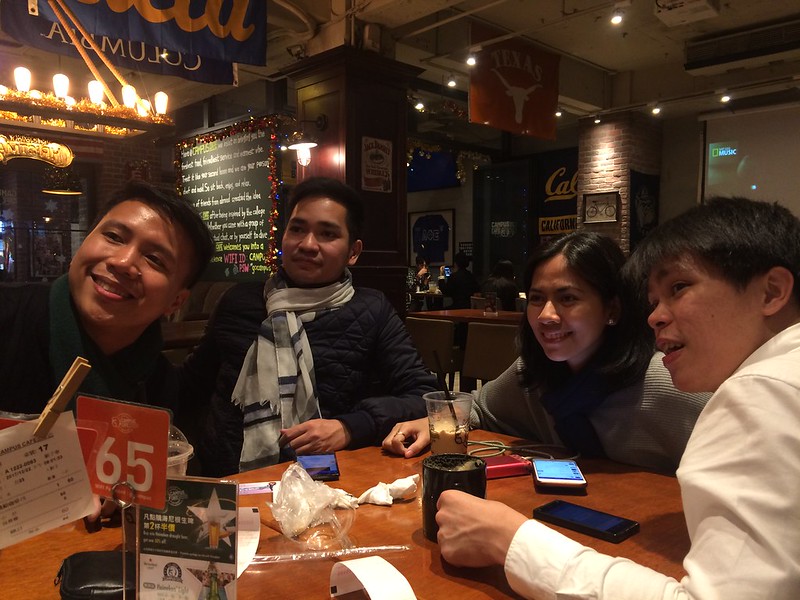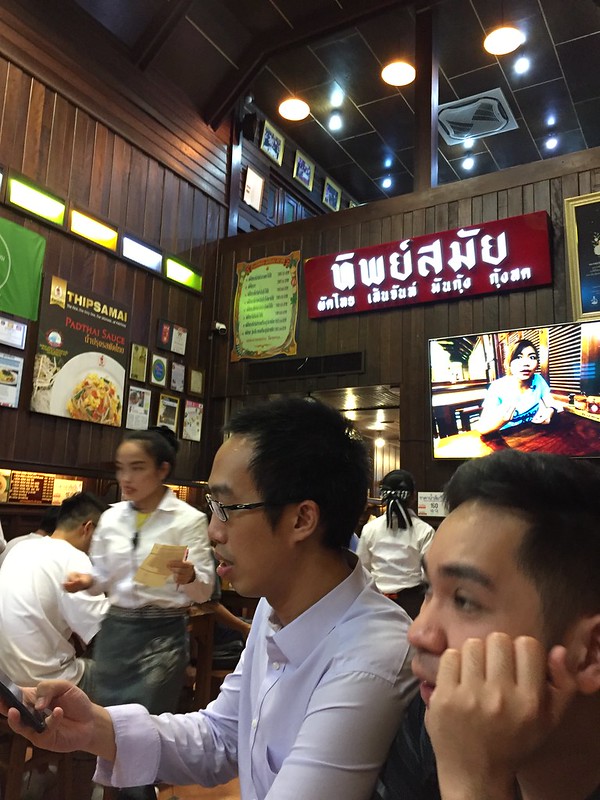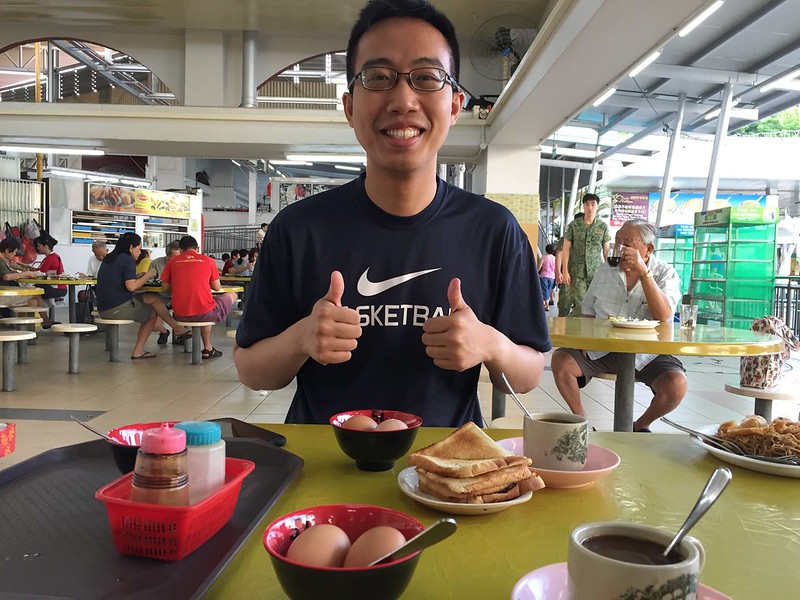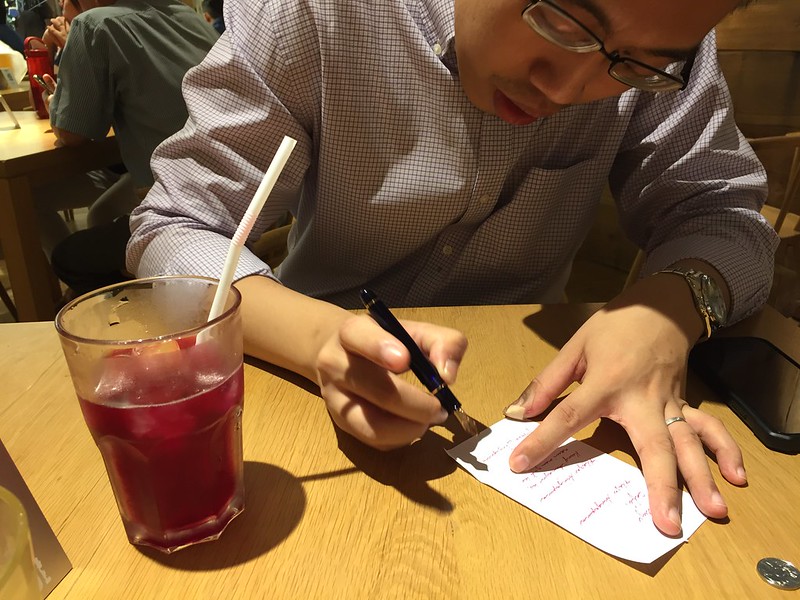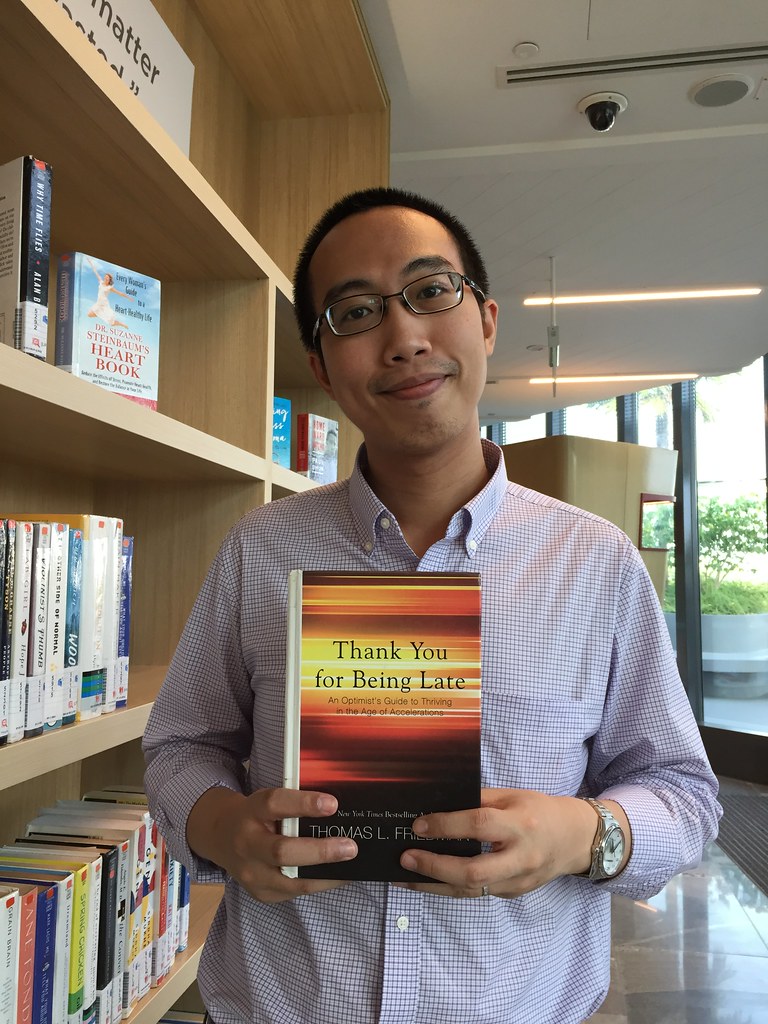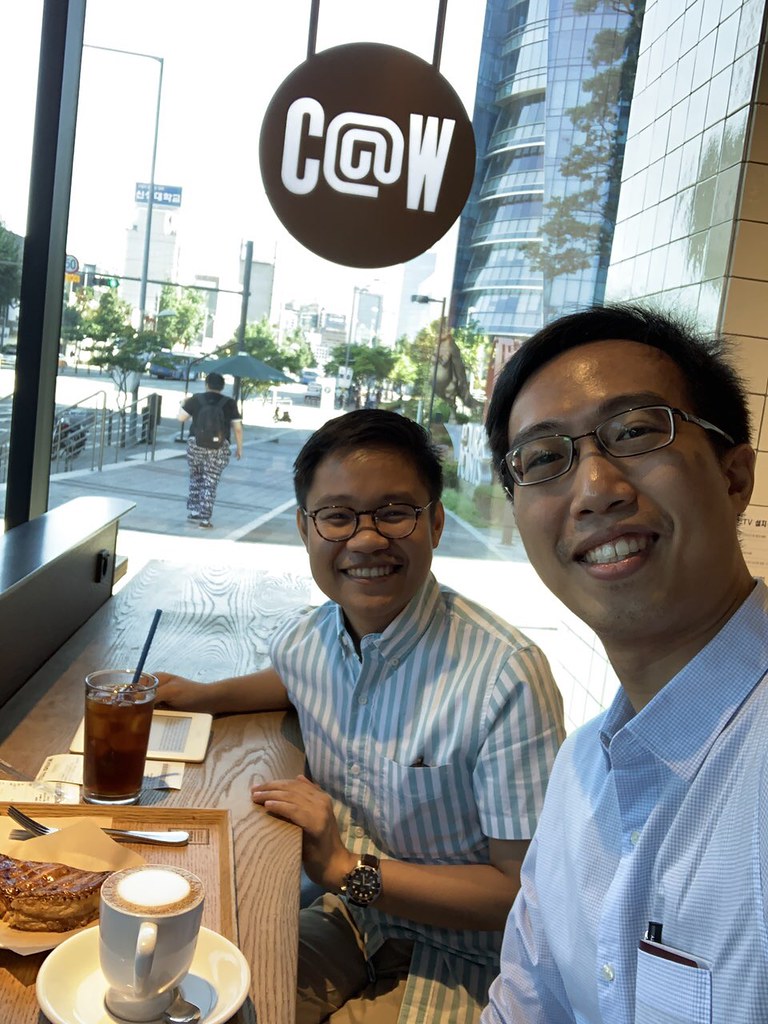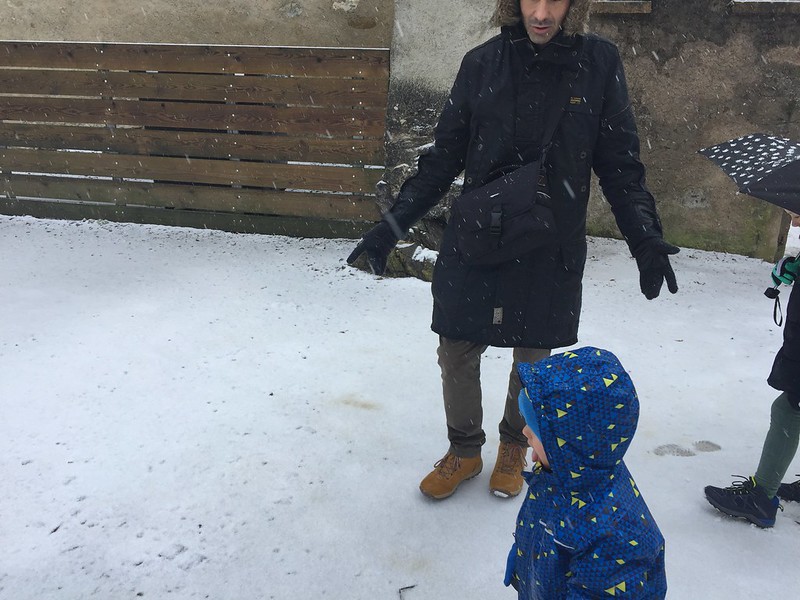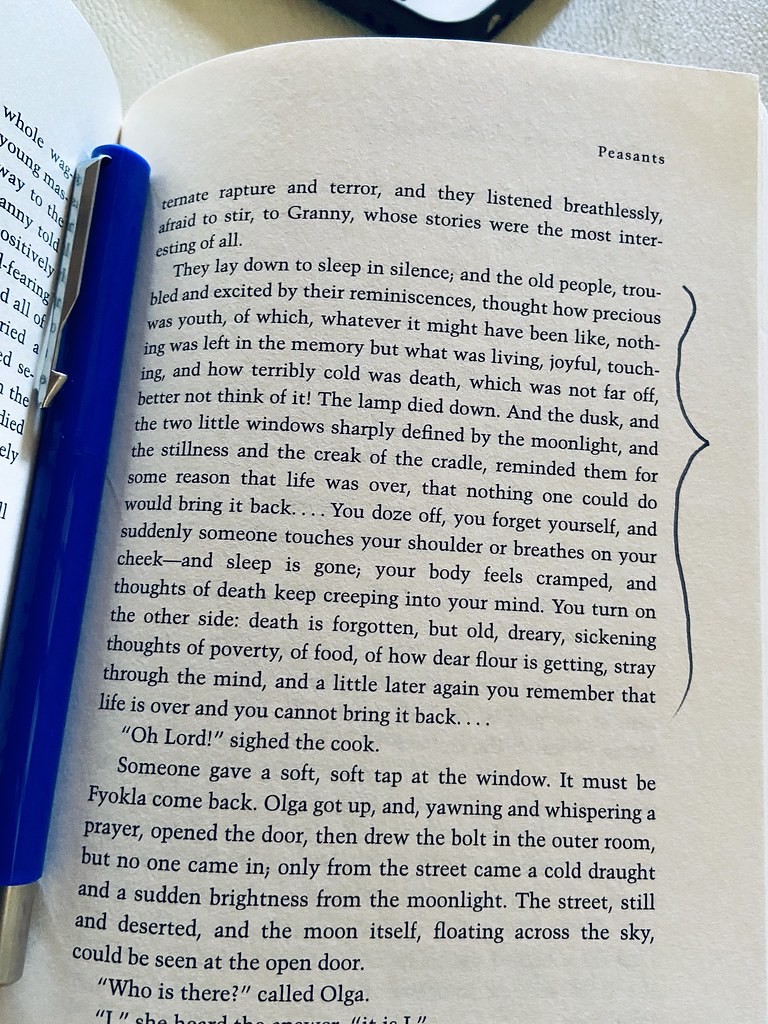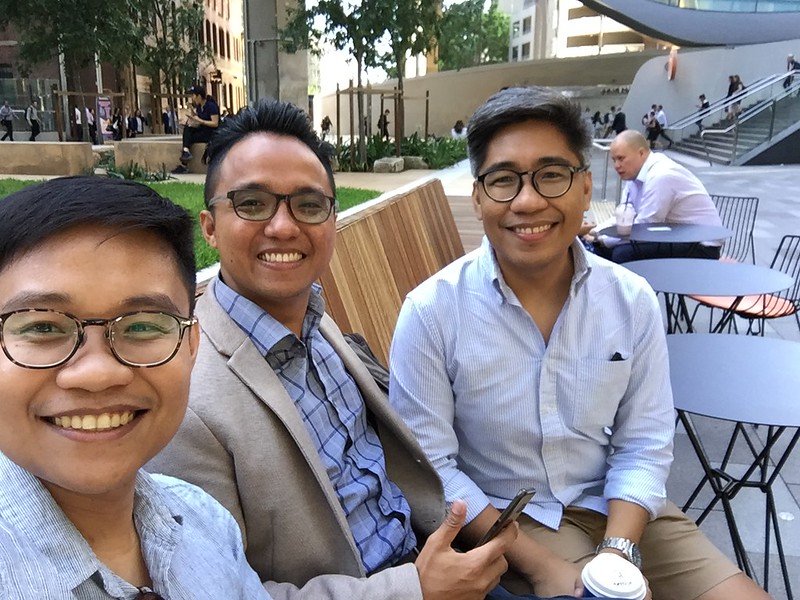
When I visited him in Sydney this year, I was able to sample his well-curated library. As with most people I know, he still prefers the printed book rather than the Kindle. One afternoon, after work, he—like the gracious big brother that he is—took me to Newtown, where we visited one of his favorite bookstores, Elizabeth's Bookshop.
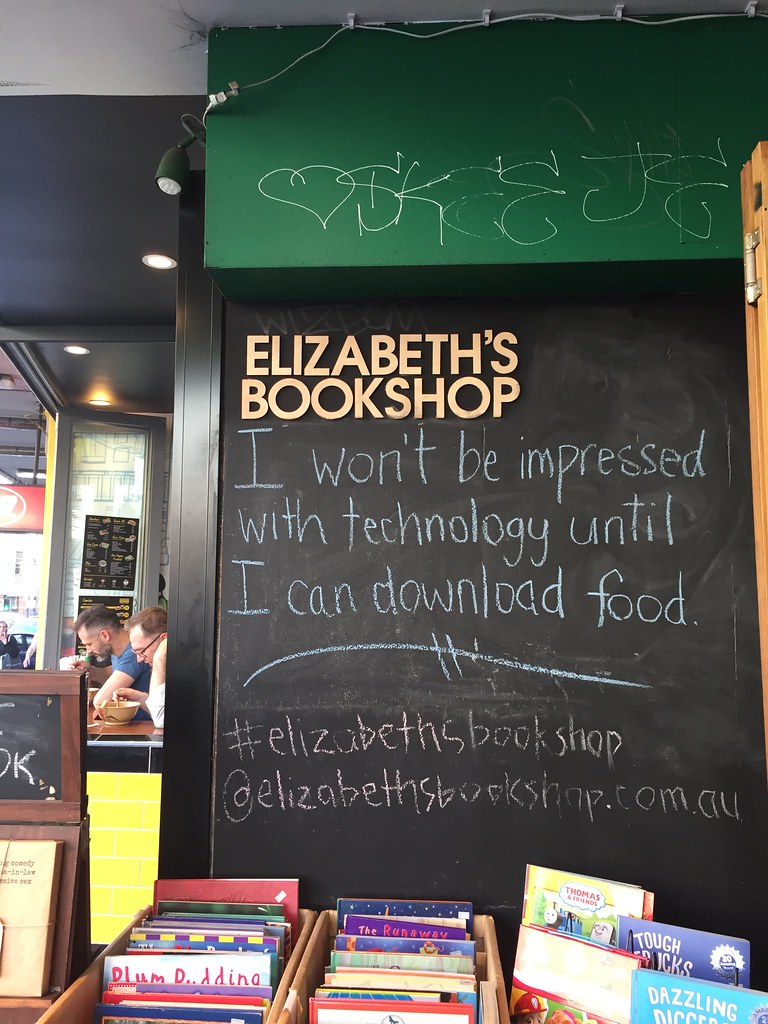
* * *
Instead of the usual Top 7 list, here I present the titles I’ve rated 5 stars! As with last year, I give ratings based solely on how I felt towards a book.
Because while details escape you, feelings linger. (Emphasis mine.)
Here it goes.
1. All The Light We Cannot See by Anthony Doerr
Short, sharp sentences form into short paragraphs into short chapters and surprisingly unfurling into a lengthy novel. I've always been drawn to World War II literature, and Doerr . . . narrates a six-year old blind girl's point of view from an empathic perspective. When I set foot in Paris, I will remember to attempt to close my eyes and trace Marie LeBlanc's steps to the Museum of Natural History, if only to succumb into her poignant imagination of a beautiful world masked in darkness.
2. A Little Life by Hanya Yanagihara
I could not bring myself to reading the last 50 pages of this 720 page long novel about depth of friendships and the protagonists' individual struggles to survive a world that seemed to explode out of unresolved personal traumas. I was warned by a dear friend that reading this might not be good for my mental health, yet I insisted. I soldiered on from pages upon pages of torturous narrative and imagery until all that's left of my energy has been wrung out. I had to raise the white flag for my own sanity and just asked my friend to let me know how it ended. Anything revelatory about the human condition is worth my time, and tears.
3. By The Book by The New York Times Book Review
It's like finding a treasure chest. Sixty-five of the leading writers (Ian McEwan, JK Rowling, Donna Tartt, Jonathan Franzen, etc) open up about the books and authors they love and hate. Interesting how I'm not keen on any Lee Child novels but I find his interview the most engaging.
4. The Sea by John Banville
It was the coldest of winter in Sydney when I read this. But to read about a seaside village written in the most elegant, sublime prose was more than enough to keep me warm curling up under my covers. Banville won the Booker Prize for this great work. I tell you one more time, his prose is so so elegant you can hear classical music in the background. And it’s Chopin no less!
5. Soul Keeping by John Ortberg
I was in New Zealand for my birthday. The air was crisp, pure. Ortberg's text seemed to jump out of the pages in a symphony of reassuring verses. It talked about caring for the most important part of you, your soul. Ortberg, for the most part of the book, wrote about the life of his mentor Dallas Willard. He lived a full life anchored on his unrelenting faith. It's an ideal read in a world full of excesses. Side note: I coerced my brother, Keith, who was travelling with me to go somewhere else while I finished reading this book in a quaint cafe with the full view of the snow capped mountains of Queenstown. When it was about time for us to meet, he was not picking up my call. He eventually turned up in our meeting place limping. He had a bad fall (whether he was taking a selfie when it happened remains a mystery). The usual overprotective, ever anxious ‘kuya' would have gone nuts imagining broken discs in a foreign land. But my anxiety was kept at bay. And we went on to enjoy our first snow experience at The Remarkables Snow Resort. I trust your intelligence, dear reader, to deduct why that was so. By the way for good measure, when we got back to Sydney we spent almost an entire day waiting and traveling between clinics doing x-rays! Good thing this ‘kuya’ coerced his brother to buy travel insurance! See?!
6. Conversations With Friends by Sally Rooney
Some say light reads do not pass for good literature. I want to counter that by suggesting you read Sally Rooney. For a writer to distill the complexity of human dynamics in friendships, one must have the talent and skill to untangle intricacies and present it in a form that is accessible and simple. Reading this novel was like a walk in the park in spring. You do not stop to contemplate on why a certain flower draws more attention than the other. You just stop and look at them, smell them if you want. But don’t overthink. There are things that spark joy that do not require any taxing effort, like streams of unguarded conversations with dear friends.
7. Calypso by David Sedaris
If you happen to have read Tina Fey’s Bossypants, then we can agree that it was funny, super funny. I remember reading it on my Kindle during a 3 hour drive from Davao City to my hometown, oblivious to the infamous road systems in the Philippines. I got stomach spasms from too much laughing. But without disrespect to Tina Fey, Bossypants is not something you can present to your, say, English 132 class. Meanwhile, Sedaris is well read by the most respected writers of our time. And rightly so because his meditative observations towards middle age and mortality in Calypso is both very funny and...I hate to use this word—avant garde. So it’s like the Queen of England laughing at a funny situation. If you still don't get what I mean, consider this—David Sedaris:Heart Evangelista = Tina Fey:Mimiyuuh haha!
8. Emotional Agility by Susan David
Reading 'self-help' literature may be taken as acknowledging ones weakness. It can be repulsive for those who feel superior in managing their own lives. By all means let it be 'self-help', but if its backbone is of the highest standards in decades of research in the most reputable institutions like Harvard and Stanford I submit to you, dear friends, it is worth it. If there is one takeaway worth sharing from this book, it is this: Courage is not the absence of fear. Courage is fear walking. I consider this one of the most important works I’ve read this year.
9. The Story Of A Lost Child by Elena Ferrante
I skipped Books 2 and 3 of this Neapolitan series. Book 1 was gripping. The HBO adaptation I found dragging. In the final series, Ferrante writes with so much truth and honesty you can name the characters after your own gossiping neighbours! Reading about the protagonists childhood in Book 1 and how their lives have either changed or remained the same in Book 4 is one of the most exciting jumping point of discovery for me as a fan of this mysterious writer. Yes, Elena Ferrante is a pseudonym. And he/she remains to be one of the biggest conundrums in the literary world today. I long to visit Naples one day.
10. The Emperor Of All Maladies by Siddharta Mukherjee
I had to remind myself every now and then that what I am reading is not fiction. It's riveting, obviously educational and a great way to bring me back to reading non-fiction! Dr. Mukherjee masterfully walked us through the biography of cancer. From the first recorded account of cancer in history, to the painful narrative of the discovery of chemotherapy and the countless protocols, failures and trials to come up with cocktails of drugs to find a cure, to the political strategies that needed to be done to beg for more funding for research, and to the piercing fact that it remains a human story more than anything cellular or medical, this is a saga that makes the pages reek with stench and aroma of death and life. I’ve heard so much about this book from my dear friend who also happens to be the inspiration of this yearly reading list, Dr. Lance Catedral (www.bottledbrain.com). He shared with me that this book, among other events in his life, aroused his interest to further specialise in Oncology, after a much commended residency in Internal Medicine at the Philippine General Hospital. I am still currently reading this and I reckon it is a fitting title for me to end this year. The narrative is so intense as it is hypnotic, each sentence metastasising into my own defenseless visualisations of ‘what-ifs’. It is a book that will bring all your concerns into perspective. It is outright compelling to say the least. I submit to you in saying we are not the masters of our own fate.
* * *
I look forward to your list next year, Kuya John! (Related link:
You may want to read his list for 2018.)
Labels: books/reading
